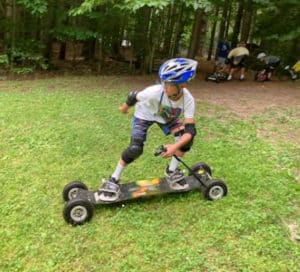Safety at Our Summer Camp
 Christian Camps and Conferences, Inc. endeavors to conduct safe programs and to inform our families of inherent risks. We believe that young people seek adventure and that camp provides an ideal environment for exploring new activities in a prescribed and safe manner. However, some of the activities may involve risks that young people do not encounter in their every day routine. Examples of camp activities in and on the water may include swimming, sailing, snorkeling, white water rafting, blobbing, and water skiing. Land activities can involve rappelling, rock climbing, riflery, archery, paintballing, horseback riding, and activities in the facilities or on the trail where inclement weather may be involved, bicycling on public roads, travel in camp vans, and ropes or obstacle courses. Camp participants must also assume the infrequent but inescapable risks with such activities.
Christian Camps and Conferences, Inc. endeavors to conduct safe programs and to inform our families of inherent risks. We believe that young people seek adventure and that camp provides an ideal environment for exploring new activities in a prescribed and safe manner. However, some of the activities may involve risks that young people do not encounter in their every day routine. Examples of camp activities in and on the water may include swimming, sailing, snorkeling, white water rafting, blobbing, and water skiing. Land activities can involve rappelling, rock climbing, riflery, archery, paintballing, horseback riding, and activities in the facilities or on the trail where inclement weather may be involved, bicycling on public roads, travel in camp vans, and ropes or obstacle courses. Camp participants must also assume the infrequent but inescapable risks with such activities.
Safety is an essential element of the activities we offer, and we observe standard precautions.
-
We conduct our programs according to practices and procedures recommended by the American Camping Association, which is an accreditation organization of best practices for running youth camps. Our camps undergo regular visitation through the accreditation process to ensure standards are maintained. While we are aware that it is not possible to foresee every contingency nor to eliminate all risk, our risk management program includes specific criteria for staff selection, training and supervision, written safety policies and procedures, reporting and review of accidents and supervision will provide reasonable precautions for the safety and well-being of each camper.
-
Our camps have well-equipped Health Centers and excellent medical staff who engage with local medical providers as needed. The health and safety of your child is our first priority.
-
While we are able to accommodate for many medical conditions, there are limitations in the nature of our camp that restricts our ability to care for certain conditions. For example, we are not equipped to manage campers in need of blood glucose monitoring or insulin administration. We also are not equipped to manage potentially life-threatening medical conditions such as certain seizure disorders, cardiac dysrhythmias, artificial airways, etc. If your child is diagnosed with a potentially serious/life-threatening condition, please reach out to the medical director to determine if our camp is equipped with the interventions needed to manage their condition(s).
- Parents of campers who have experienced a mental health crisis in the past year will need to discuss their child’s needs with our camp medical director. The medical director reserves the right to determine if the camp is equipped to provide the adequate support, care, or supervision for your child while at camp.
-
A high percentage of staff return from year-to-year which helps provide consistency of program and safety protocols.
- Third-party trainings and certifications are required for staff who are managing any high-risk activities.
-
At the start of the season, the staff complete a two-week training program which focuses on physical and spiritual development of the campers in a safe supportive environment.
-
New staff members are hired only after they go through an application and interview process complete with reference checks and background checks. The majority of the staff come to camp referenced by other staff members which serves as a natural; screening process.
It is our goal to provide each camper and staff member with an engaging and exciting experience in a safe environment. Parents should contact the Executive Director for further clarification on these issues if necessary.